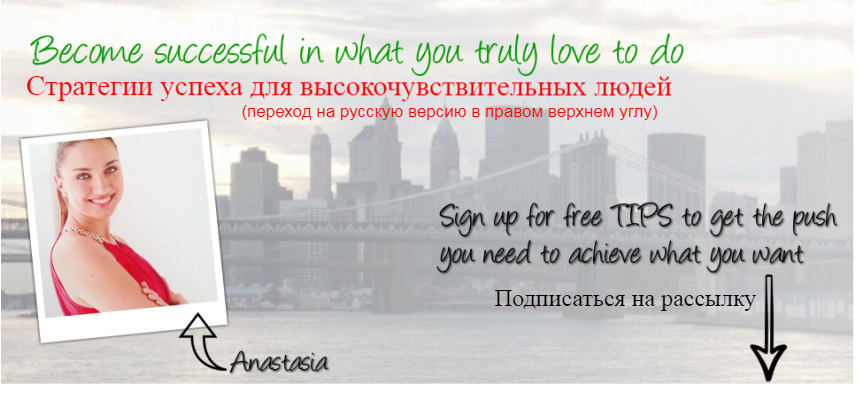
First, what are you passionate about?
Second, what does it make you feel when I ask you this question?
The 'passion' question is one of the most commonly asked questions during job interviews and social events, yet a great deal of people struggle to honestly answer it. They might be ok with their current job, they might be even happy about it – but passionate?.. That’s too strong of a word. Let’s face it: there are those lucky chaps who knew what they wanted to do before they learned to walk and just went for it. Most of us are not like this.
Take an example of Kate, a friend of mine (no, it's not Kate in the picture although she's cute, too). She graduated with honors from a top-tier university, and now in her early thirties works as a lawyer for a large City finance firm. She does a good job and keeps her boss and clients happy. However, Kate is getting increasingly tired of an intense work style and wants to change it. She isn’t sure how she should do it though.
Kate has already had a few conversations with people who managed to change their careers, went through a couple of career-related blogs, and even bought a self-help book promising to help her find a fulfilling career. They all suggested to ‘find her passion’. This statement doesn't mean anything to Kate though and makes her feel confused, so she decides to make a list of things she likes. She lists dancing, hiking, cooking, and meeting friends, but doesn't know what to do after the list is built. She can’t pick one hobby and isn’t sure how what she likes can translate into a new meaningful career, let alone help her earn a comparable living. She adds more things to the list, but feels stuck, and eventually starts thinking that something is wrong with her, because she doesn’t seem to find her passion as easily as others do.
The good news is that there’s nothing wrong with Kate or with hundreds of other people who face the same challenge. However, Kate makes a typical mistake as she assumes that finding a passion is a rational linear process and therefore approaches it as she would approach reviewing a legal contract. It’s actually quite the opposite:
Finding one’s passion is a non-linear and an irrational process. One cannot predict where and how it ends up and how long it will take you to get there. It’s also a matter of trying and doing, and not thinking.
Let me explain. What would you do, if I told you that you could do anything and didn't have to worry about your income, house, or family? Probably, something that seems irrational and childish to you – I would love to be a writer, I would like to take a course in photography etc. Notice that tiny moment of an energy burst, of joy, of warmth inside that you experience when you say it before ‘but this is stupid’ kicks in. This is precisely the feeling that ‘passionate’ people experience every day doing what they love to do. This is the feeling that you may want to follow if you want to unfold your passion. By following I mean actually going and doing what you think you might like to do. Notice that this ‘passion’ might not yet have any business idea behind it and you should not have a clear plan of how you can earn cash, it just makes you feel childlike and full of energy.
So don't leave your boring job (yet) if you don't have an alternative guaranteed source of income, just go out there and explore 'ridiculous' and 'stupid' things you might want to do as step one.
Finding your passion is an exploration, a trip into the unknown that might not bring immediate results. You need to simply allow yourself to experience this warm joyful feeling first and follow it. If it disappears, you need to find another thing that triggers it. There is no inconsistency here, we are merely working on making you feel alive first.
I’ve recently been to a presentation at The Escape School, (a place opened by founders of escapethecity.org, where busy City professionals are taught to ‘get unstuck’ and find to do something different for their career. One of the presenters shared a great metaphor: finding your passion is like throwing a tennis ball to a dog, he said. You just throw it and see what happens. Sometimes you might throw too many tennis balls simultaneously and the dog gets confused - it's ok, too.
It’s a difficult idea to digest if you are used to behaving only rationally and always having a clear plan of action, but give it a try. You may also discover that a lot of things that make you feel ‘passionate’ will be very different from your idea of who you are and what you should be. It’s ok, just follow the bursts of energy inside you, the joy – or as Master Yoda would say, feel the force.
So what should my friend Kate do if she wants to find her passion? She needs to stop rationalizing and making lists. She needs to ask herself (or better, ask someone else to ask her) this exact question: what would I do right now, if I could do anything? Then she needs to go and try doing it for a few weeks! Then she might discover she doesn't like it and try something else. Or that she likes it but wouldn't want to spend all her life doing it. Things she will do probably won't bring her money (just yet), but the more alive she feels, the higher her energy level is, and the easier it becomes for her to pick the right people and circumstances to help her make this transition.
Sounds simple? Most people end up only thinking about what they might have liked, but never doing it. Simply trying out stuff is the most difficult thing in finding your passion – and the only one that really works.
Did you like this story?
You can unsubscribe at any time!

